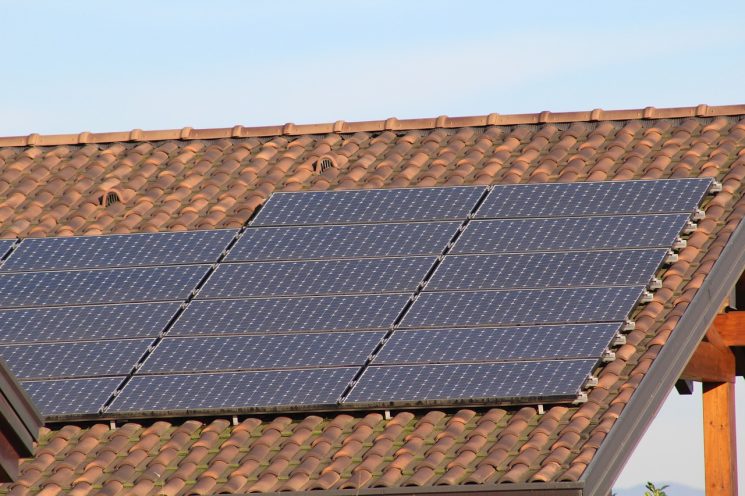Solar power is often in the news now, or perhaps more accurately, sustainable energy is. As the planet experiences more tornadoes, flooding, and extreme weather due to climate change, the media focuses more on what the world needs to do to avert disaster.
The reason that sustainable energy is mentioned so often, is because the planet needs to find alternative ways to fossil fuels. For as long as anyone alive can remember, the world’s population has relied on gas, oil, and coal, to power everything that they take for granted.
Sure, there have always been alternatives such as wood, and windmills, but by and large, humans rely heavily on fossil fuels.
Now though, alternative energy sources are becoming much more prevalent in everyday life with solar power being very popular. However, is solar power really the answer? Will solar panels be a boon or a burden?
Why do fossil fuels need to go?
Perhaps the question should really be, when will fossil fuels go? As time has gone on, production and consumption of oil have risen, despite reserves falling.
If you look at figures from Our World in Data, you can see that there is a very limited time left for the world to use fossil fuels. This is unless more reserves are found, which is possible. Regardless of what hidden reserves there may be, one day fossil fuels will cease to exist.
This report by Our World in Data shows that coal will run out in 114 years approximately. Gas and oil have far shorter lifespans with only around 52 and 50 years left for each, respectively.
Fossil fuels need to be used less though and ideally replaced, because of the damage they do to the environment. Because of this, the world’s scientists have been looking for decades at how best to replace these fuels. One popular alternative is solar power.
How popular are solar panels?
Depending on which countries you look at, solar panels are either extremely popular or almost non-existent. Some countries have taken solar power to their hearts and are actively looking to use sustainable energy to replace fossil fuels.
The countries spearheading this change are China, the US, India, Germany, and Japan. India has some of the largest solar farms in existence, with China planning another huge installation soon.
The UK is far from being a slouch in this area, but it could certainly try harder. Peterborough and Sterling are the two best examples of cities that have moved forward with solar energy.
They both have more than 10 percent of homes that are enabled for solar power. However, the rest of the country is somewhere behind, and the capital has some quite shocking figures.
Less than 1 percent of homes in London have solar panels installed. Even the best areas which include Barking and Dagenham, have less than 1.5% solar coverage.
How Much Would Solar Panel Installation Cost you?
This is possibly where the problems start. While the majority of people care about their planet, and the environment, they also have limited funds.
The last two years have seen financial hardship as the pandemic hit, and not everyone has the budget to install new solar panels. In the past, the government in the UK, and other countries, offered tax incentives, and other inducements to install solar panels.
Some companies were literally installing them for free. Now though, those incentives have largely disappeared, and with them, the motivation some people need to go solar.
Solar panel installation costs can vary wildly depending on the size of your home, and your needs. As a rough figure, you could expect to spend anywhere from £2500 to £8000. These figures can scare some people off, but the cost of solar panels might be recouped during their lifetime.
Can you Recoup Your Investment?
Using solar power means that you don’t need to use electricity or gas. Or at least, not so much. While solar panels can be expensive to install, there are financial savings on energy bills that could mean you recoup your investment.
It is said that solar panels could pay for themselves anywhere between six and ten years. This depends on how much you use them, and how they are used.
When you consider that solar panels can last for up to 30 years, then it would seem likely that they will indeed pay for themselves at some point.
If you are looking at simple methods to reduce your energy bills, then you could start by switching some areas to solar without installing panels. Garden lights, security, and driveway lights. These could all be run by solar power just by changing your devices.
There is Talk That Solar Panels are Not as Eco-Friendly as Advertised. True or False?
The reason that solar panels’ green credentials are taking a battering is due to the production methods. Chemicals, minerals, and rare materials are all needed to produce photovoltaic solar panels.
The production methods require mining, transportation, manufacturing, processing, cleaning, and more. All of this produces emissions, uses energy, and damages the environment.
Some manufacturers are using coal-fired electricity to manufacture solar panels. Which for some is kind of defeating the purpose.
So, are solar panels eco-friendly? Compared to regular electricity then yes they are. Even with the current manufacturing methods used, solar panels are capable of offsetting any environmental damage done over their lifetime.
Will you Ever Make a Profit?
Most people don’t buy solar panels expecting to make a profit. Yet, that is precisely what might happen if you install them.
How Stuff Works explains exactly how to sell electricity back to the national grid. Depending on where you live you may be able to sell your excess energy back to your utility company and make money. To do this effectively, your solar panels would need a battery system to store energy created during the day.
Do Solar Panels Help or Hinder the Value of a Property?
Another issue with solar panels is their aesthetic value or lack of it. Solar panels don’t exactly scream kerb appeal. Yet, for many, they are desirable in a property. And the estate agents think so too.
There have been plenty of studies to see whether solar panels could help the valuation of a home. One Californian study back in 2012 reported that solar panels added around 3.5% to the price of a home.
A few years ago, another study was done which showed even more promise. In 2019 it was reported that over 4% could be added to a home’s valuation if solar panels were installed.
Summary
While there are competitors for the best form of sustainable energy, solar is still the most practical for homeowners. Yes, there are question marks over the materials used and the processes involved. However, solar panels are far greener than using electricity that has been produced from coal firing.
Can you still get free solar panels? Possibly, but perhaps you are better off looking at whether they can pay for themselves. Homeowners can clearly benefit financially over time, and the planet can too.
As countries such as India, and China, push themselves to the forefront of solar energy use, it will be interesting to see how the UK follows. Solar power is totally sustainable, and it will hopefully become a replacement for fossil fuels for the masses sooner rather than later.





